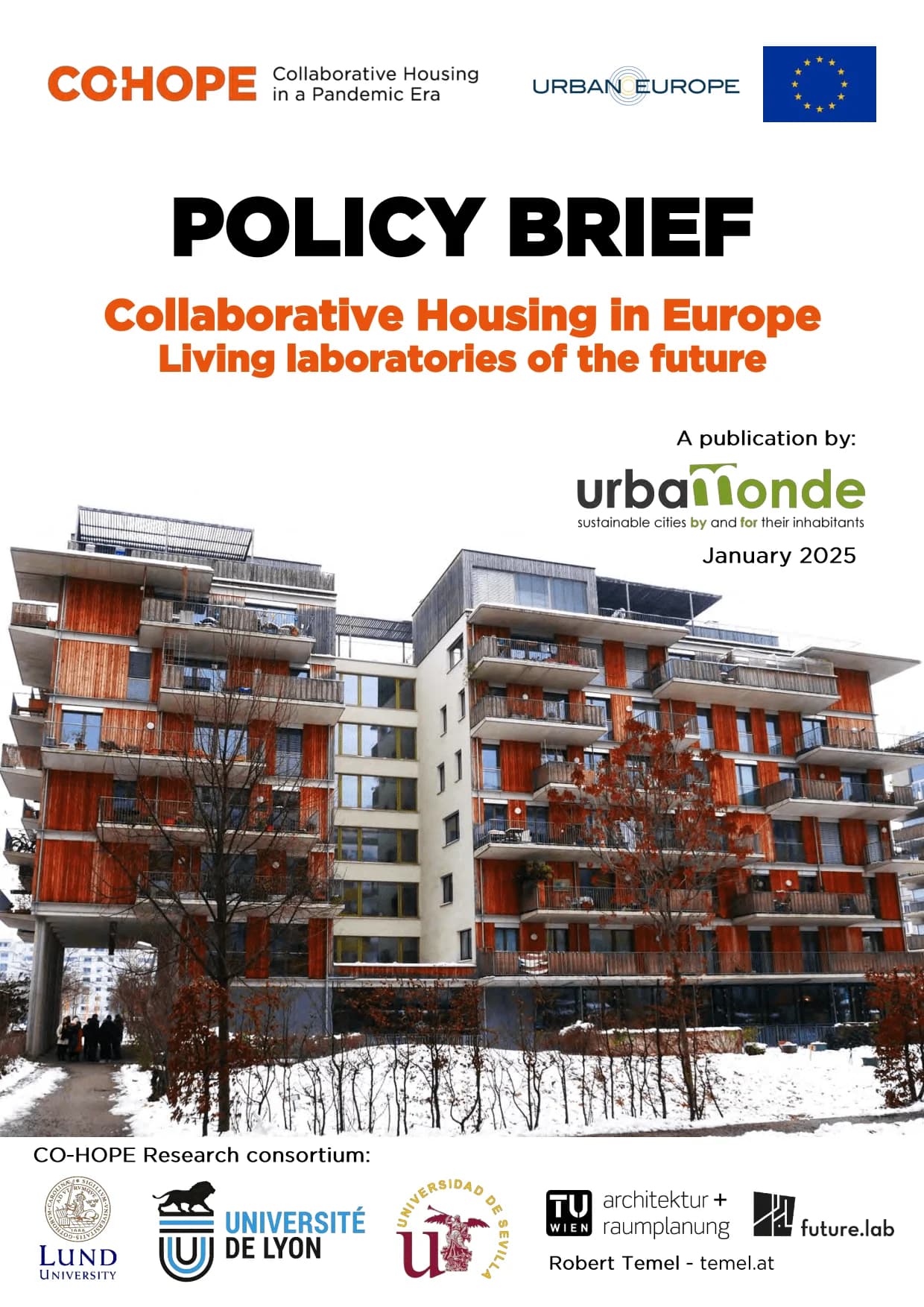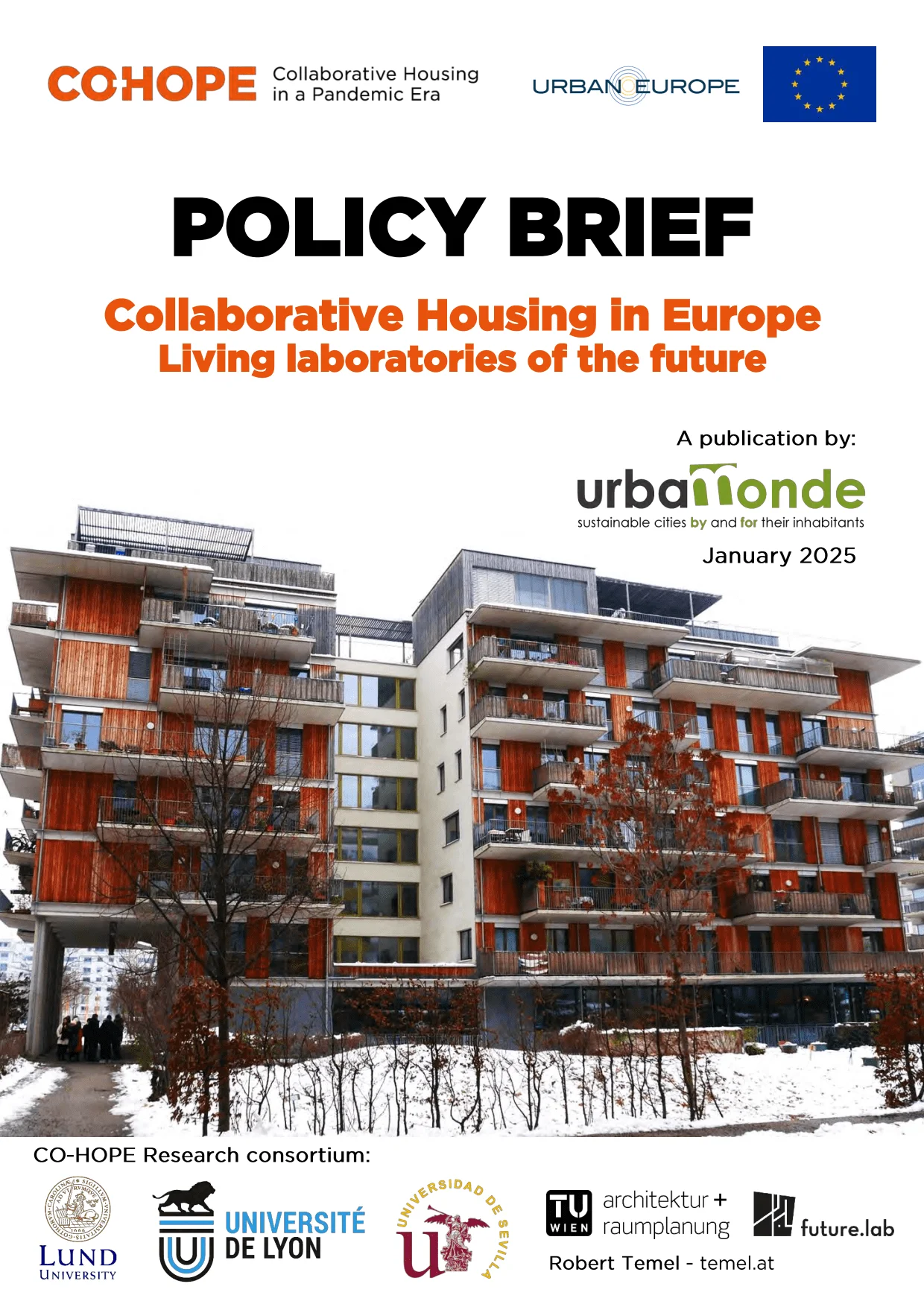AI-Generated Summary
Learn moreContext and Overview
The policy brief titled "Collaborative Housing in Europe: Living Laboratories of the Future" was authored by Pierre Arnold and Marie Brandt from urbaMonde, a French organization dedicated to promoting sustainable urban development. This research is part of a larger project funded by the EU Horizon 2020 program and the French Agence Nationale de la Recherche, involving several research institutions from Austria, France, Spain, Sweden, and Finland. The brief presents insights into collaborative housing, an innovative approach to collective living that promotes social integration and shared resources while maintaining individual privacy.
Understanding Collaborative Housing
Collaborative housing allows residents to keep individual homes while sharing common spaces, facilitating social interaction and integration. This model encourages residents to participate in all aspects of living, from planning to renovation, fostering self-governance and mutual support. It can encompass both social and private housing, addressing the diverse needs of communities.
Key Findings from the Survey
The research surveyed 393 residents across 49 different collaborative housing projects in five European countries, with a notable majority of participants being women (68%). The survey revealed that the primary motivations for joining collaborative housing include the presence of common spaces (74%), mutual support among residents (63%), and a means to combat loneliness (58%). Other reasons include the quality of housing units (43%) and safe environments for older adults (33%) and children (31%).
Case Studies by Country
The brief analyzes 14 case studies from Austria, France, Spain, Sweden, and Finland. Noteworthy examples include Wohnprojekt Wien and other projects in Austria; eco-cohousing in France; and intergenerational cooperatives in Spain. Each of these projects illustrates how collaborative housing can cater to various demographics and needs, enhancing community living.
COVID-19 Resilience Findings
The brief emphasizes the benefits of collaborative housing during the COVID-19 pandemic, where 96% of residents found the arrangement beneficial. Many reported easier access to help (87%) and a better capacity to care for others (79%). Shared spaces facilitated safe interactions while maintaining health guidelines, showcasing how collaborative living can enhance resilience in challenging times.
Barriers to Scaling Collaborative Housing
Despite its potential, collaborative housing faces significant barriers in Europe. Key challenges include a lack of legal recognition, inadequate funding mechanisms for communal spaces, and high demands placed on starter groups. Additionally, issues such as urban land competition and misconceptions about collective ownership models hinder the growth of this housing model.
Policy Recommendations
The brief proposes several policy recommendations grouped into four main areas: enhancing knowledge about collaborative housing through public databases and training programs, developing legal frameworks that recognize collaborative housing as public-interest development, improving access to land and funding for such initiatives, and creating financial mechanisms specifically for common spaces.
Vienna as a Model Case Study
Vienna is highlighted as a model for successful collaborative housing implementation. The municipality has allocated urban development plots for innovative projects that encourage collective ownership, helping to prevent speculation and foster vibrant communities. This example serves as a blueprint for other European cities looking to adopt similar sustainable housing practices.

